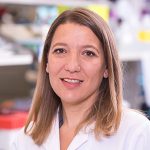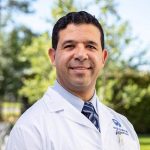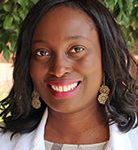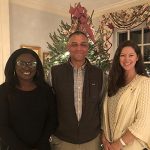
Funded in partnership with Miami Dolphins Foundation
Women who live in disadvantaged neighborhoods experience shorter breast cancer survival rates. One cause may be stress from social adversity. Social adversity includes exposure to violent crime, poverty, housing instability, and more. Studies have shown that this stress can lead to gene responses that increase inflammation and depress immune response. This can result in higher rates of metastasis (the spread of cancer cells to another part of the body) and shorter breast cancer survival. Previous research from our team has found that women in disadvantaged neighborhoods show these gene responses associated with worse outcomes. This study builds on this past research with a population that is both larger and more diverse. It will validate our previous findings and help us begin to identify how neighborhood disadvantage, stress, and more aggressive genes are related. It will set the stage for future interventions that can address this negative impact and reduce disparities in breast cancer survival rates.

Funded in partnership with Miami Dolphins Foundation
Liver cancer is deadly. Hepatocellular Carcinoma, or HCC, is the most common type of liver cancer. There are significant racial differences (disparities) in how long people with HCC survive. Black people with liver cancer do not live as long as White people. Also, Black patients are less likely to receive treatment. Previous studies have been unable to explain why these differences exist. We started a research study to learn about various factors that might contribute to these disparities. When we approach patients to participate, many say that they are too overwhelmed. Some patients do not understand what is happening when they are first diagnosed. In this study, we will ask patients and caregivers what needs we might be able to help with. We will also ask healthcare staff and patient advocates to identify what needs patients have. Together with patients, caregivers, advocates and medical staff, we will create a program that helps high-risk patients to navigate the health care system and provides extra support to the patients who need it most. This study is unique because we will train lay people to work as navigators, rather than nurses. By building a relationship between the patient and navigator, we will be better able to meet our patients’ needs. We expect this program to increase the number of patients that come to their appointments and get cancer treatment. This program may increase patients’ willingness to participate in research studies, which could dramatically improve our ability to understand and eliminate disparities in survival.

Funded in partnership with Miami Dolphins Foundation
Like computers, the cells that make up our bodies also have specialized ‘software’ that runs their specific functions. When cells in the blood become cancerous -known as leukemia-, they hijack this biological software. By doing this, the leukemia cells can grow very fast and quickly multiply. Despite the many different types of leukemia that exist, they all share certain defects in their biological software. We call these shared defects a ‘biological common denominator’ across all of them. As part of this biological common denominator of leukemia we have identified the abnormal loss of PDZD2. Although PDZD2 is a gene capable of stopping the growth of other types of cancers it has never been studied in leukemia. Normally, PDZD2 is present in healthy blood cells. However, when blood cells become malignant, they lose PDZD2. We will explore how loss of PDZD2 helps turn healthy blood cells into leukemia. Importantly, we will determine if treatment of cells with a synthetic version of PDZD2 can help stop the growth of leukemia cells. Our long-term goal is to develop a novel way to treat patients with leukemia. We expect that this synthetic PDZD2 will kill the leukemia cells while having no effect on healthy blood cells.

Funded by Hooters of America, LLC
The goal of this project is to understand experiences of racial and ethnic minority patients with cancer with clinical trials. This is an important topic because racial and ethnic diversity in cancer clinical trials is low. This project will help us to understand difficulties patients have in joining clinical trials. It will also help us to understand reasons that make participating in a trial easier for patients. This project will allow patients to share their views on steps we can take to improve diversity in our trials. We will also compare feedback from medical oncologists and trial coordinators. This project will lead to the creation of an intervention to address to issues identified in this study. If successful, our goal will be to test out intervention in other settings.

Funded in collaboration with ESPN
Research studies that test how new cancer drugs work often don’t include all members of the United States population. Scientists are unable to tell how well these new treatments work in diverse groups. Our team will study how Black cancer patients and their families decide whether participating in a research study is right for them. We will talk with Black cancer patients and their families, doctors, cancer support groups, and Black community members to help us develop a public service video about clinical trials. We will also develop a plan to share information about clinical trials among Black communities. This approach will help us develop a public service video that is based on the needs, experiences, and strengths of Black communities that can be shared widely.

Funded in collaboration with ESPN
Black women have significantly higher breast cancer death rates compared to Non-Hispanic White women. This difference represents an important public health concern and an important target for the development of solutions. Cancer clinical trials are important in solving the differences that exist in cancer health care between Black and White patients, because they provide high-quality, guideline-driven health care. It is important to have clinical trial participants be similar to that of the general population, so that any development of new drugs or interventions from these clinical trials are effective for everyone in the population. Unfortunately, Black women are substantially underrepresented among cancer clinical trials. Consequently, given their lower participation, any positive outcomes from such trials may not be relevant to Black patients. If not corrected, this will lead to continued differences in cancer health care between Black and White patients. The most commonly identified barriers affecting participation in clinical trials among Blacks, include issues of trust, experimentation, poor communication, and access. These issues need to be addressed because, Black patients participate at similar rates compared with White patients when offered clinical trials and help with any barriers. We are part of the largest health system in the state of New Jersey and serve large populations of Black patients. We offer a variety of cancer clinical trials and we propose to put into action, a comprehensive program using patient navigators, patient advocates, marketing and communication, and physician engagement to increase awareness and participation of Black breast cancer patients in clinical trials.

Parker Bridge Fellows Program; Funded in partnership between Parker Institute for Cancer Immunotherapy and the V Foundation
Cancers are driven by mutations, or changes in the DNA that encode the proteins and processes that allow the cells in our body to function normally. Those mutations make proteins work differently, making cancer cells grow faster or live longer, but they also make cancer cells look different from normal cells to the immune system. This process is similar to when someone gets a viral infection, where viruses infect normal cells, and the immune system battles the infection by recognizing the infected cells by the presence of viral proteins.
There are a series of molecules, called the Human Leukocyte Antigens (HLAs), that are responsible for showing those foreign proteins to the immune system on the surface of the diseased cells. Cancer cells can also change or lose these HLAs, so that the immune system no longer sees the cancer cells as “different” from normal cells. My research is focused in understanding these HLA molecules in skin cancer, to address the question of how the cancer cells avoid getting killed by the immune system. Skin cancers are generally treated with therapies that help the immune system kill cancer cells, and my research helps us understand why these therapies may or may not work. By explaining whether HLAs are different in cancer cells, my research may improve the success of our treatment strategies in skin cancer.

Funded by the 2021 Victory Ride to Cure Cancer
North Carolina (NC) has the largest American Indian population east of the Mississippi River. Yet, we do not know much about the health and health care of NC American Indians. Because cancer is the number one cause of death in NC American Indians, we need to better understand cancer and cancer-related needs in this unique population in order to reduce the cancer burden. Three NC cancer centers joined together in 2021 to partner and learn more about how to help American Indians with cancer. We also want to find and develop community resources for American Indians with cancer in North Carolina.
In this study, we will explore how cancer affects American Indians in North Carolina. First, we will measure the number of cancer diagnoses and deaths from 2003-2019. We will also learn more about how and where American Indians receive cancer care. These data will come from the North Carolina Cancer Registry and health insurance files. Second, we will ask tribal leaders to help us explore the needs and barriers to healthcare in American Indian communities. Finally, we will work with American Indian youth leaders to understand tribal community strengths and local resources that can help with cancer care.
This information will help American Indians by showing where the greatest needs lie and pointing to opportunities for better care, with a long-term goal of improving cancer outcomes in all American Indians.

Funded in Collaboration with the University of Florida Foundation
Brain cancer is now the leading cause of cancer-related death in children, due to the significant improvements in outcomes for children with more common cancers such as leukemia. This research proposal advances a novel immunotherapy treatment for medulloblastoma (MB), the most common malignant brain tumor in children. We have pioneered a treatment platform for pediatric brain tumors called adoptive cellular immunotherapy, which involves expanding tumor-reactive ‘killer T cells’ to large numbers outside of a patient and delivering these potent immune cells back to children with resistant brain tumors. This approach is currently undergoing evaluation in first-in-human clinical trials at our center. This project will advance this platform into a next generation approach that uses genomic technology to identify patient-specific antigens expressed in medulloblastoma tumors and specifically isolate and expand T cells recognizing these unique tumor targets (called neoantigens). If the objectives of this study are met, we will be able to significantly enhance the specificity and potency of an already promising platform and rapidly translate our findings into innovative clinical trials for children battling brain cancer.

Funded by the 2021 Victory Ride to Cure Cancer
Dr. Ronny Bell is a Professor in the Department of Social Sciences and Health Policy at the Wake Forest School of Medicine and Director of the Office of Cancer Health Equity at Atrium Health Wake Forest Baptist Comprehensive Cancer Center. Dr. Bell’s research focuses on disparities that impact health outcomes and health care access for racial/ethnic minority and underserved populations.













